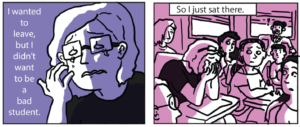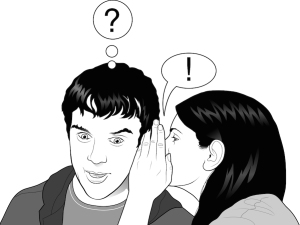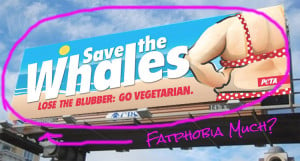
A person sitting at a desk, one hand to their forehead, looking stressed.
I understand the impulse behind not wanting to discuss race. It’s easier to plug our ears and hope that if we ignore the problem long enough, things will eventually resolve themselves.
I used to get angry whenever anybody would ask me about my experiences with racism. I’d deny its existence, because to accept that I was the victim of racism would open up a can of worms that I wasn’t ready to deal with. I told people that I refused to ever fall into the trap of “victimizing” myself, and I made it my goal to show people that I was thick-skinned.
However, none of these actions and thought processes actually made the racism thrown at me go away. All it did was exacerbate my pain – and my silence made the racism run even more rampant.
When I was the only Asian in an all-white church, they nicknamed me “Ching Chong” as a sign of affection. Even though it devastated me, I fake-laughed along because I didn’t want to seem like I was bothered by what was happening. I didn’t want to reinforce the stereotype that Asians “don’t have a sense of humor.”
I was also gaslighting myself, and my inner monologue kept saying, “You don’t need to correct them, it’s not that bad; you’re being oversensitive.”
As time went on, I realized that my silence gave these people permission (for five years) to get increasingly comfortable with spewing white supremacist ideas at me without realizing how bigoted they were being.
Since I let them call me a slur every day, they thought they could also tell me about how they understood slavery because it was “damn convenient,” or they would begin sentences with “I’m not racist, but…” followed by a stereotype about a marginalized group.
I sat idly by and let it happen, and it wasn’t until years later in therapy when I realized how traumatic this experience was.
Nowadays, when somebody says something outwardly racist, I don’t let it go. I voice my feelings and my personal experiences. And even though there is resistance at times, it has provided people a perspective that they otherwise wouldn’t have had.
It wasn’t until I started speaking out against racism that race relations in my own personal life got better.
I believe that if we were to use my personal experiences and apply it to our culture, race relations would get better in society as well.
I’d like to share what I’ve learned. So here are four reasons why refusing to talk about race won’t make racism go away.
1. ‘Defining the Problem’ Is the First Step in the Problem-Solving Model
The way we’re taught about history is that racism is a horrific thing that happened in the past, rather than something that is ongoing. We’re rarely taught that racism is alive and well today, which it very much is.
As a result, there’s a lot of denial whenever anything having to do with racism in the past is brought up to illuminate our present.
The most recent example of this phenomenon is the reaction to Michelle Obama’s speech at the DNC. When she said that every morning, she wakes up in a house that was built my slaves, many pundits and citizens took umbrage to what she said.
They challenged her statement’s accuracy. But even if they knew what she said to be true, they felt like even bringing up slavery was “divisive.”
When we, as a society, can’t even agree that slavery has real-life implications in today’s world or can’t make simple concessions that racism is horrible and exists in modern life, we’re not addressing the problem.
And that means that we aren’t even following through with the first step of the problem-solving model, which is “defining the problem.”
It makes sense that defining the problem is the first step. Because if we can’t even admit racism exists, or point out instances of racism, then how would we ever solve the problem?
The denial is something that we need to break through. When our society is in denial or reluctant to speak out about instances of obvious racism, the issue is swept under the rug, much to everybody’s detriment.
Even when there is video evidence of unarmed black people (including children) getting shot by police officers, there are hundreds and thousands of comments from people who refuse to acknowledge that there’s a problem.
They’ll say that we don’t know the whole story. They’ll ask what the victim did to provoke the officer. Or, if all else fails, they’ll say that this was an isolated incident, not a systemic issue.
We aren’t even close to having a conversation about potential solutions. And that is due to many people not thinking that there even is a problem to solve. This denial may seem innocuous, but it’s actually very damaging because it allows racism to continue throughout those denials.
Until we recognize the issue, we’re going to keep seeing patterns of violence, division, and discrimination – because too many people would rather stay silent than admit that there’s a problem to solve.
2. Ignoring the Problem Is the Textbook Definition of Ignorance
The image I presented earlier of the person closing their eyes and ears until the problem goes away is a prime example of ignoring the problem.
I believe that many people choose to view society as inherently just, that people are treated equally, and any instances where discrimination occurs are aberrations rather than the norm.
But this is a textbook definition of ignorance.
Ignorance literally means lacking knowledge and information. By shutting your eyes and ears to the world’s problems, you’re actively partaking in ignorant behavior. And historically, ignoring problems has never made them go away.
With the advent of high-speed Internet and social media, this is becoming more evident than ever – because problems that we’ve been ignoring are finally rising to the surface.
In the late 1980s, there were discussions about police brutality. N.W.A. released their song “Fuck tha Police,” which highlighted issues between black people and law enforcement.
In the early ‘90s, Rodney King was beaten by police officers on camera. But other than that, there wasn’t much “proof” that this was happening on a grand scale. Most of the people in this country chose not to believe black people when they said that there very much was a problem.
Now that everybody has cell phones and cameras on them at all times, the release of police brutalities videos has skyrocketed. For people who chose to ignore these racial problems in the ‘90s, it may seem like the police are killing unarmed black people at a higher rate. But all that’s really happening is that there is now video evidence of what black people have been discussing for years.
And now that there is this video evidence and there is still mass denial, race relations are reaching a boiling point, specifically with the vitriol aimed at the Black Lives Matter movement, or the pro-police countermovement Blue Lives Matter. Protestors, unarmed citizens, and police officers are now being gunned down in the streets.
For people who are surprised at these events, it just shows that they haven’t been paying attention for the past several decades – or centuries.
The ironic thing about all of this is that the word ignorance has commonly had a negative connotation, and many people will agree that ignorance is bad. But they don’t take an extra second to realize that ignoring the problem is literally taking the action of “willful ignorance.”
Perhaps, on some level, they believe ignorance is outward bigotry when all it has to be is sitting idly by and letting horrific things continue happening.
3. Silencing These Discussions Builds Up Resentment Over Time
Years ago, I was playing a board game with some close friends and their family members. I was the only person of color there.
We had such a great time talking about our hopes and our dreams, opening up to one another.
For a moment, I felt comfortable enough to share instances of racism that had happened in my life. I wasn’t trying to make anybody feel uncomfortable. I was simply sharing myself with them.
The second I did this, everybody looked down and became extremely quiet. They almost seemed resentful that I would ruin our good time by bumming everybody out with real-life stories about my life.
To appease them, I quickly dropped the conversation, made a joke to break the tension, and none of us ever brought it up again.
I still remember that night. I think about it all the time and how much it hurt that they wouldn’t take a second to acknowledge the awfulness of what had happened to me.
It may not seem like a lot to them, but it would’ve meant a lot to me for them to simply validate my feelings. I’ve told this story to several of my white friends, and their response is commonly the same: “Well, maybe they just didn’t know what to do. They didn’t know how to fix the problem.”
This is a prime example of the differences in language that I’ve had with other white people, particularly white men. It’s not that I think having a “problem-solving mentality” is inherently bad. On the contrary, at times, it could be very useful.
It’s that I very much dislike the idea that it has to be the default way of thinking. Just because they feel that it’s unimportant that my feelings are validated doesn’t mean that it is inherently unimportant.
When they wonder what they could’ve done better, my answer is generally that they could at least acknowledge that what happened to me was horrible, and for them to express their sorrow. More importantly, the very least they could’ve done is let me talk about it, let me vent, let me get it out of my system, and express my frustrations with our society.
If you’re wondering the value in doing that, it takes a little bit of the burden of grief off of me. But if I’m not even allowed to bring up racism without their weird discomfort or quiet resentment that I’m ruining their good time, the negative feelings stay with me.
I’m asking for so little. I’m not asking for problem solving. I’m not asking for them to go out there and find these people to hurt them.
All I’m asking for is a little bit of compassion. All I’m asking for is the ability to speak out about these issues without defensiveness. All I’m asking for is to be able to speak out about these instances without them taking it personally, putting their guilt at the forefront of the discussion.
It’s one thing to deal with outright bigotry from strangers on the Internet. It’s another to be silenced by your own family and friends. If they – and so many others in different circumstances – had just acknowledged my feelings, I absolutely wouldn’t feel so much anger, hurt, and resentment.
All I need to do sometimes is vent. If I can’t even do that, then these feelings will fester. Many of my friends of color have vocalized similar sentiments to me, letting me know that they’re sick of having their experiences categorically dismissed.
Silencing us doesn’t fix anything. It just builds up resentment and drives us further apart.
4. It’s Dishonest to Pretend to Not Notice Race and Racism
Since we’re taught to live in a society where we don’t even notice race, “noticing race” has become synonymous with “racism.” But this is a dishonest rejection of reality.
Noticing race doesn’t make you racist. It’s what you do or think as a result of noticing that could be potentially damaging or problematic.
But since many people have the fear of letting anybody know that they noticed race, they would rather opt out of conversations altogether, because being perceived as racist is a pain too unbearable to experience.
However, some of these very same people are the ones who are quickest to notice race when their race isn’t represented. For example, when Beyoncé had her Super Bowl Halftime Show, there was huge outcry from many white people about how all of her dancers were black.
They may claim that they only noticed it because it was so glaring; however, if a person of color were to notice that a TV show or movie was all-white (which is the majority of media), then that person of color is being “divisive.” This is an unbelievably hypocritical and dishonest double standard.
When it comes to issues of systemic racism, these people are generally silent. It would be one thing if they stayed silent on all racial issues, but when they aren’t being represented, it shows that they do understand what it’s like to feel left out, or to feel like they are lacking representation.
To reiterate a previous point, there would be nothing wrong with noticing that Beyoncé had all black dancers, or that a remake has an all-black cast. But when simply noticing turns into rage about white people being unrepresented (even when white people dominate media), that’s when it becomes problematic.
Perhaps the most heartbreaking part about those incidents is that it demonstrates that these people are capable of having discussions about race if they wanted to, but they choose not to until it directly affects them – and they claim “reverse racism” while doing so.
I wish they would use their capabilities to discuss issues of systemic racism instead – because the sooner everyone addresses these issues, the sooner we can start finding solutions.
***
Being silent about race relations doesn’t benefit anyone in society. It makes everybody angry that there’s so much division, and it makes marginalized groups feel unsafe.
Until all of us discuss these issues (or enough of us to make up a vast majority), our problems will continue to escalate – because we’ve never been honest about our country’s history, and our past will continue to haunt us.
[do_widget id=’text-101′]
Robin Tran is a Contributing Writer for Everyday Feminism. She is a standup comedian and blogger, and she holds a BA in English from UC Irvine. In early 2015, Robin came out as transgender woman and has written about her firsthand experiences ever since. She has performed at the Improv, Mad House Comedy Club, and the Comedy Palace, and her articles have been published in xoJane and Time.com.
Search our 3000+ articles!
Read our articles about:
Our online racial justice training
Used by hundreds of universities, non-profits, and businesses.
Click to learn more




















